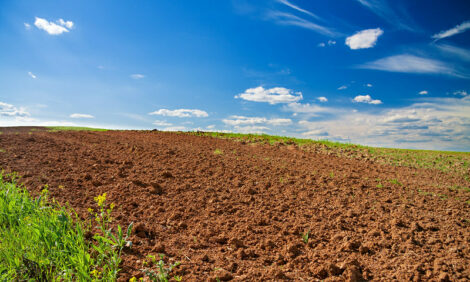



Early Warning Health, Welfare System Could Save Farmers Millions
UK - A new early warning system to alert farmers to the risk of disease among their young cattle stock is being developed by experts at The University of Nottingham.The innovation, dubbed Y-Ware, could save the UK farming industry millions of pounds, while improving health and welfare of animals and reducing the antimicrobial use to treat these diseases.
The £1.13 million project is a partnership with farming digitalisation specialists PrognostiX and BT, and is supported by a grant from Innovate UK, the UK Government-funded innovation agency.
Dr Jasmeet Kaler, Associate Professor of Epidemiology and Farm Animal Health currently leading Ruminant Population research in the University's School of Veterinary Medicine and Science, is the academic lead on the project.
She said: "Improving youngstock health on cattle farms is a key priority for cattle industry and also been identified by industry task force RUMA (responsible use of medicine in agriculture alliance) as one of key targets released last week for antibiotic reduction on cattle farms especially beef. Use of innovative and precision health technologies offer a great solution in this direction.
"Whilst there has been an increase in availability of various technologies for livestock over the past decade, there are none that target youngstock health and overall very few precision livestock technologies that have been validated in the field and combine various sources of data with multiple transmission protocols to develop algorithms for livestock health and welfare. Our group does impactful cutting-edge research into the health and welfare of UK cattle and sheep, with a special focus on endemic disease in populations.
"In this project, we are leading data analytics working alongside our partners. We will utilise our domain knowledge with regard to our understanding of disease biology and epidemiology together with various machine learning approaches on the data gathered via sensors.
Our overall aim will be to develop an innovative technology that combines different formats of data, uses application of Internet of Things and advanced analytics for early detection of disease in young stock and thus allow targeted use of antibiotics."
Cattle farmers are facing major challenges in remaining profitable while maintaining the high standards of animal welfare demanded by retailers and consumers.
Every year, of the 2.5 million calves that are born, eight per cent of them are born dead or die within 24 hours and a further 15 per cent die in rearing from diarrhoea and pneumonia, costing the UK cattle industry £80 million. The cost of a pneumonia outbreak is £81 per calf and £57 per calf for a diarrhoea outbreak.
Bolus sensors, which sit in an animal's gut and monitor body temperature or pH, are in widespread use in cattle - but are currently only available for adult cows. Also, many technologies exist on farms that don't talk to each other which limits the predictive value of such data.
The Y-Ware project is aiming to develop a bolus sensor which could be used in calves as young as 14 weeks, as well as a dashboard that will use machine learning techniques to give farmers an early warning system for health using bolus sensor information and comprehensive information about the animal collected from a range of additional sources including building temperature, humidity, farm and vet records and weight.
All the information would be used to produce baseline data and a specific 'signature' for the animal. Unusual changes to this signature, for example, an unexpected rise in body temperature, could allow farmers to spot the signs of disease, treat early and quarantine the animal to prevent wider outbreaks among the herd.
The development will allow farmers to more effectively target use of antibiotics to treat these diseases and this will tackle overuse of the drugs which is contributing to the problem of antibiotic resistance in both animals and humans who are exposed to increasing levels through the food chain.
Y-Ware will develop an Internet of Things (IoT)-based data collection solution including:
- Specific real-time 24/7 temperature sensor with combined tamper-proof animal ID verification
- Easy to collect data from a range of incompatible sensors (both wearable and non-wearable) in young stock via wireless technology
- A fully automated weighing platform to collect data on cattle weight without the need for human intervention
- A communications hub to collect and process the remote data
- A web dashboard offering access to customisable reports that will provide farmers and vets with essential information on individuals and groups of animals. This will provide an early warning system for disease, a 'welfare score' and detailed antibiotic usage that can be used.
The consortium is made up of specialists in engineering technology, software development, vet epidemiology, cattle health and data science, cloud computing and data analytics.
Alan Beynon, who is a Director of PrognostiX, Director of St David's Poultry Team and Managing Director of Molecare Farm Vets, said: "This is a very exciting time for veterinarians in practice in all sectors of Agriculture as the pressure to reduce antimicrobials is current and pressing. The use of real-time data to make clinical decisions is an integral part of the where the future will be alongside better diagnostic facilities. We are delighted to be working alongside our dynamic partners Nottingham University and British Telecom."
Martin Tufft, IoT Director at BT said: "We're providing expertise around data science and analytics, exploring the data generated from multiple sensors with a view to developing unique algorithms and machine learning techniques to support the project. The application of advance data analytics is key to the success of IoT solutions and we look forward to helping this project provide valuable information for the farming industry."
TheCattleSite News Desk


